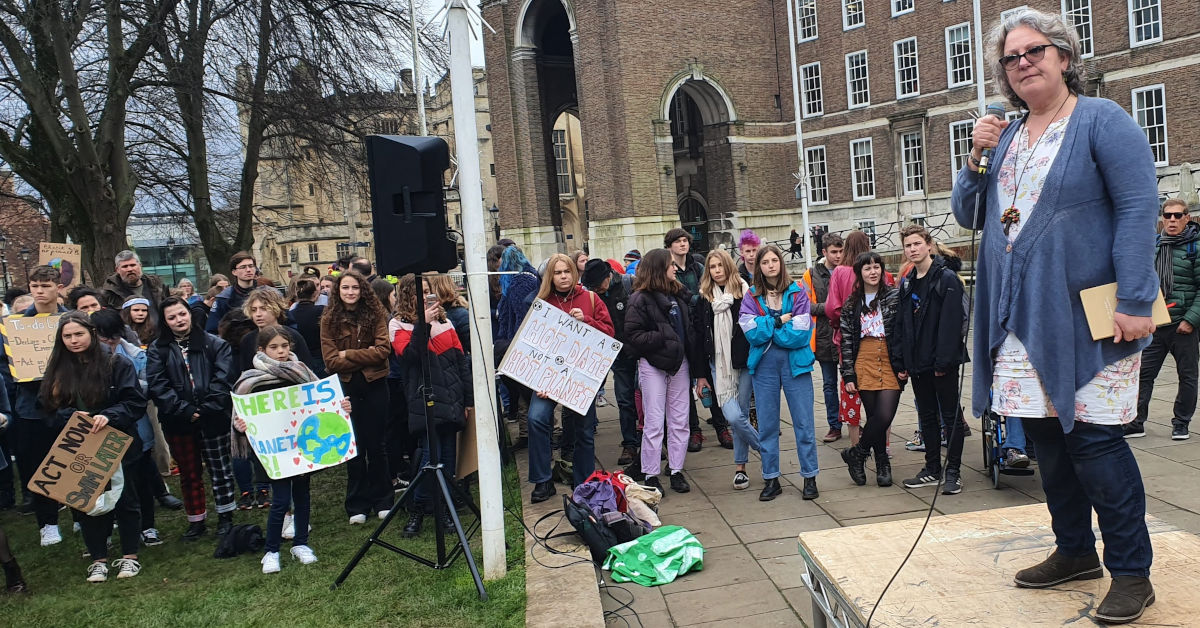It’s no secret that today most of the younger generation have access to more information than ever before at the touch of a button. Many of them are switched on about all sorts of things and mobile phones are portals to a web full of facts, figures and statistics. But how do we encourage them to use their phones to raise the issues our environment is facing? How can we compete with the distraction of social media and encourage this generation to get involved in tackling climate change? Here are five easy ways that we can achieve this and address the problems that perhaps don’t get as much media coverage.
1: Education
It goes without saying that to be able to do something about environmental concerns, we must first learn about them and recognise both the short- and long-term implications. There are many brilliant platforms that children and teenagers alike can use to find out about all sorts of topics such as pollution, carbon emissions and deforestation. From websites to interactive quizzes to videos on YouTube, the sheer scale of information available is mind-blowing. Encouraging the younger generation to utilise what they have at the click of a button is crucial in taking the first steps towards resolving the issues facing our world. Whether that’s done by watching a bite-size video, encouraging your children to follow relevant organisations on social media or supporting them to sign petitions (just check that there’s no minimum age limit), there are many ways to get your young ones thinking about the environment. It’s all about incorporating this environmentalist perspective into their daily phone-checking. It’s difficult to compete with the trends of today, but if we can get them to spend a few minutes reading and sharing this subject matter then we’re on the right track.

2: Community
Tackling climate change is impossible alone, so getting your family involved in local community initiatives is paramount. Encouraging children to get out and about is not only a brilliant way to tire them out, but it establishes the idea that in order to create change, you have to be active about it. Modern technologies are great but there’s only so much the younger generation can get out of looking at a screen. Whether attending a community-run football match for all or spending some time litter picking, being outside in the fresh air and talking about these issues with others is a fabulous way to get your children actively thinking about their environment. Experiencing community spirit is key to uniting the generations so that we can all work together to achieve an eco-friendly, sustainable way of life. After all, who’s to say that youngsters can’t be the ones to bring environmental issues to the attention of their peers, elders or local authority?
3: Go Outside
We must act as the voice of our natural environment, so begin with what’s on your doorstep; opening your eyes to the issues in your local area and how you can help is a great way to start. Breaking the younger generation out of their normal routines and encouraging them to go outside and enjoy the beauty of the natural world is one of the first steps you can take in making your children more environmentally aware. Whether you decide to dust off your bike, get your walking boots out or simply spend five minutes in the garden, take your young relatives along with you. The outside world is at the heart of what The Word Forest Organisation does and appreciating nature all around us is what connects us physically and emotionally with our environment – it’s this feeling which pushes us to spark change and do everything we can to help protect it before it’s too late. Encouraging our young ones to enjoy the outdoors and the friendly buzz of the bees is perhaps more valuable than we might first anticipate.

4: Fundraise
Encouraging your youngsters to do what they can to raise money for charitable causes can certainly raise environmental awareness. Inspiring them to get baking for a cake sale or help to organise a sponsored walk is not only a brilliant way to get everybody involved in the name of the greater good, but it’s also a huge confidence boost as they will be leading the drive for change. Ensuring that the natural world is sustainable for many years to come is definitely something you can help to do from the comfort of your own home. Fundraising is true to its name – it’s about having fun and raising as much money as possible. Doing something that’s both fun and fulfilling whilst raising awareness of issues such as climate change and the carbon crisis ticks many boxes; the kids feel a sense of achievement plus they can see how their efforts help charities such as The Word Forest Organisation and others who are committed to creating a sustainable future. Plus, hosting a cake sale never requires much persuasion – there’s always a need for taste testers!

5: Volunteer
There are many amazing charities and organisations who welcome volunteers of all ages to help boost donations and attend fundraising events; both of these are excellent opportunities and often only require a couple of hours at the weekend. A parent may be required to supervise, depending on the age of the child and the organisation concerned. The best way of sparking a real interest in the environment is through first-hand experiences and volunteering is greatly beneficial to both sides; it can help to boost confidence, self-esteem and build up everyday life skills, communication skills and confidence. For children especially, working alongside people with similar values can be valuable and inspiring.
Anna Parkinson and The Team





